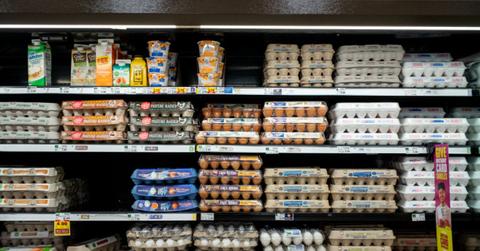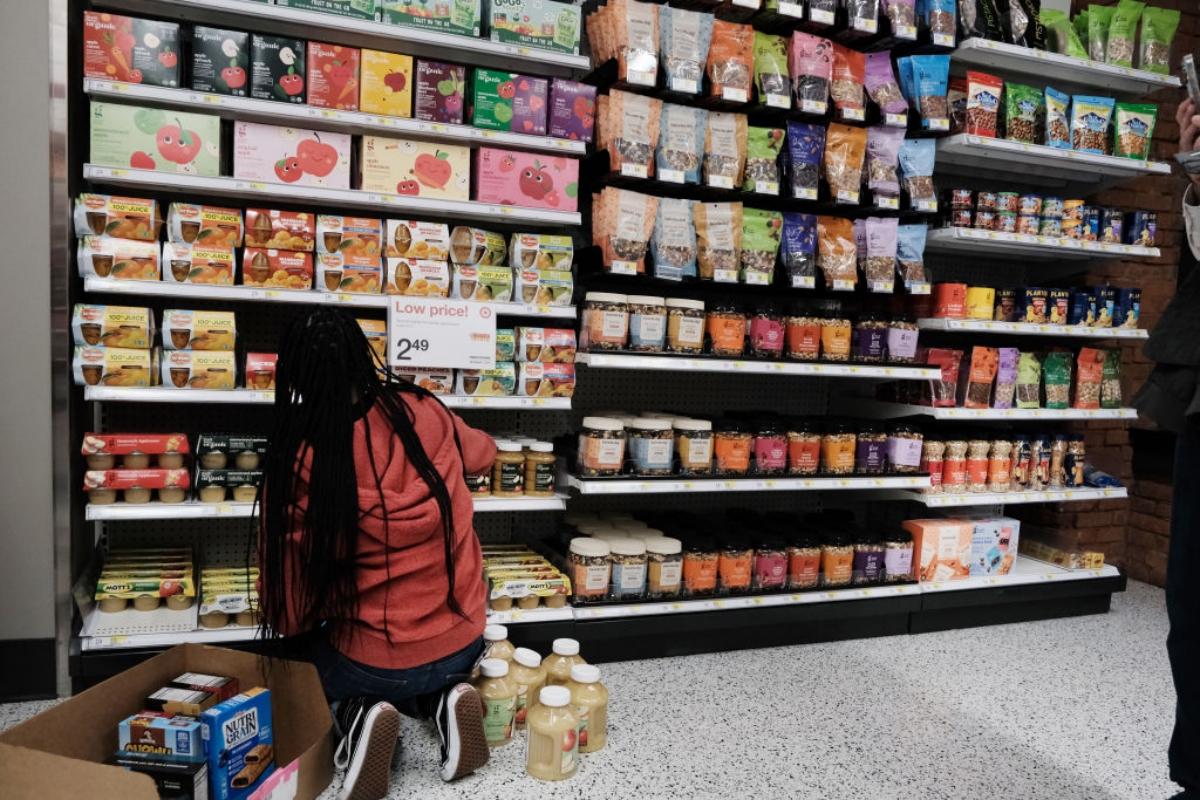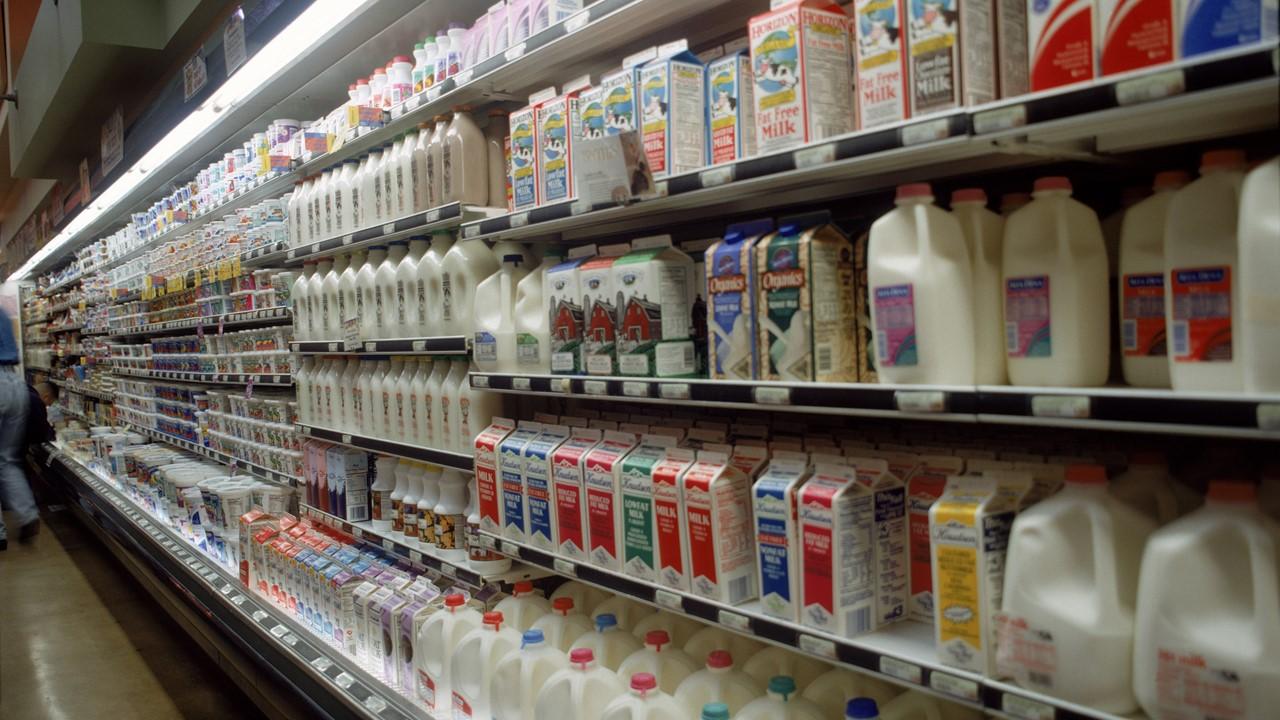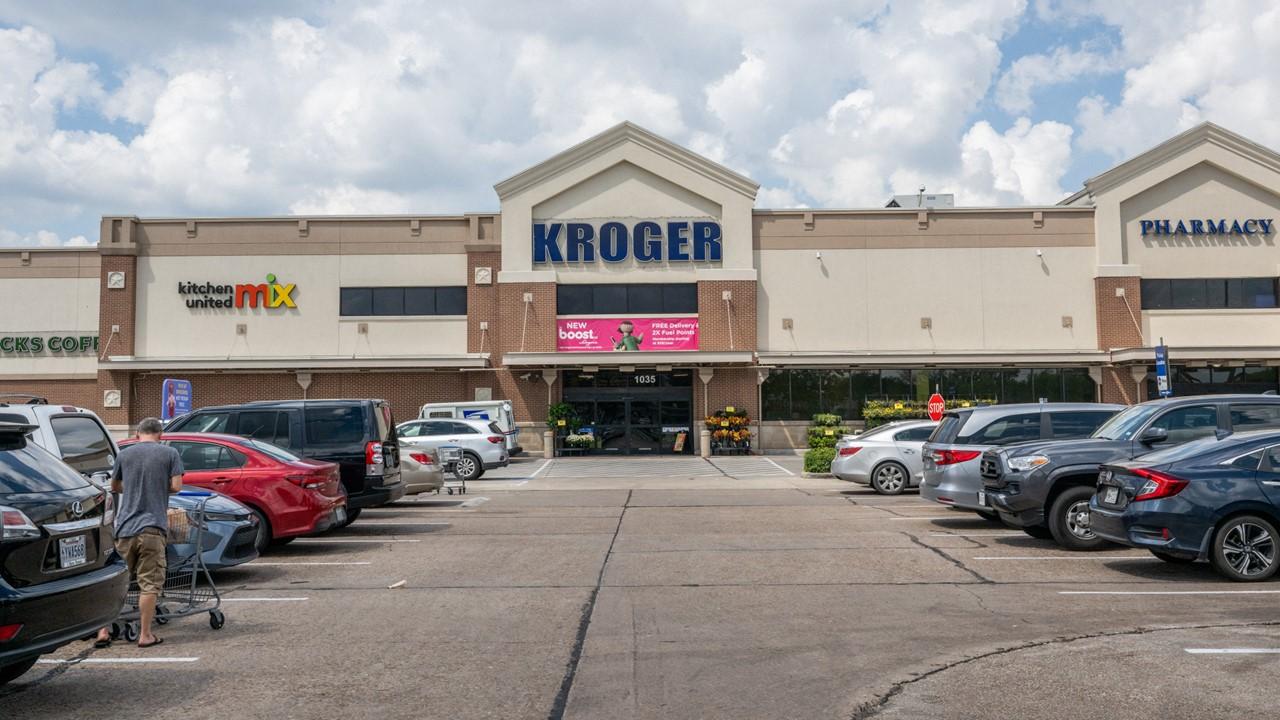Are Grocery Stores Price Gouging Customers? Experts Weigh In
Are grocery stores price gouging? Some claim companies are using inflation as an excuse to raise prices unreasonably. Here's what we know.
Jan. 18 2023, Published 9:58 p.m. ET

As Americans continue to feel the pain of buying groceries to feed their families and high inflation drags on, many are wondering if companies are taking advantage of inflation. Some believe large grocery stores are raising prices more than necessary. Are grocery stores price gouging, or is inflation to blame?
Inflation, or the overall increase in the price of goods over a period of time, can be seen as one of the culprits for the major pinch in household budgets. However, as the cost of groceries has skyrocketed over the past few years, many question whether corporations could do more to lower costs for consumers.

Grocery prices across the board are much higher than they were six months or a year ago.
Why are food prices so high right now? Are grocery stores price gouging?
Ask anyone why their grocery bill is so high lately (and since 2020), and you'll likely get a variety of answers. Inflation, of course, can be tied to a number of factors. Some of the reasons for higher food prices include crop disease, livestock disease (like the bird flu causing eggs to be in short supply), war in Ukraine, and extreme weather.
As CNN explained, the most recent Bureau of Labor Statistics report on consumer prices showed an 11.8 percent increase on groceries overall in the past year. Tom Bailey, senior consumer foods analyst with Rabobank, said, “Even though we’re seeing inflationary pressures ease, we still have a war in Ukraine.”
Bailey also noted, “Fertilizer costs have improved, but they still remain very high. Energy costs have improved, but they still remain relatively high. Labor costs still remain a problem — and the list goes on.”
What should you do if a grocery store is price gouging?
As the Better Business Bureau notes, price gouging often happens during an emergency such as a natural disaster or a power outage. The BBB urges consumers who suspect price gouging to file a complaint or go to BBB Ad Truth. It's a good idea to first compare prices at similar retailers to determine if a grocery store's prices are significantly higher than other stores.
Comparing prices at different grocery stores is a good idea anyway, and you may decide to take your business to the most reasonably-priced store.

Here's how much some grocery prices have increased.
According to the latest BLS data, egg prices are by far the worst as far as grocery inflation over the past year. As of December 2022, eggs were up 59.9 percent over the previous year, and 11.1 percent from just a month earlier. This is particularly frustrating to consumers who often rely on eggs as a cheap source of protein.
These are some of the items with the largest price increases over the past year:
- Butter/margarine: 35.3 percent
- Lettuce: 24.9 percent
- Flour and prepared flour mixes: 23.4 percent
- Canned fruits and vegetables: 18.4 percent
- Bread: 15.9 percent
- Cereals and cereal products: 15.6 percent
- Milk: 12.5 percent
- Chicken: 10.9 percent
- Baby food: 10.7 percent
Do grocery stores make more money during inflation?
In May 2022, Accountable.US released a report claiming large retailers, including grocers like Kroger, raised prices unnecessarily in 2020 and 2021. CBS MoneyWatch noted that this coincided with record profits for many companies.

The report claims that some of these corporations used excessive profits to reward shareholders or raise CEO pay, rather than passing on savings to consumers. Sen. Elizabeth Warren told to MSNBC last year, "This isn't about inflation. This is about price gouging."
Certainly, grocery stores have to account for their suppliers, which may implement price increases on their end. In July, Walmart CEO Doug McMillon said the company was talking to suppliers about finding “an innovative way to avoid cost increases,” reported CNBC.
Will food prices go down in 2023?
Consumers are tired of paying such high prices, and while some inflation is expected, they're wondering when to expect relief. According to projections from the USDA, food prices will likely continue to rise in 2023, but at a slower pace than in 2022.
The USDA says that food-at-home costs will rise between 3 percent and 4 percent this year and overall food (including food away from home) costs will rise 3.5 percent to 4.5 percent.
